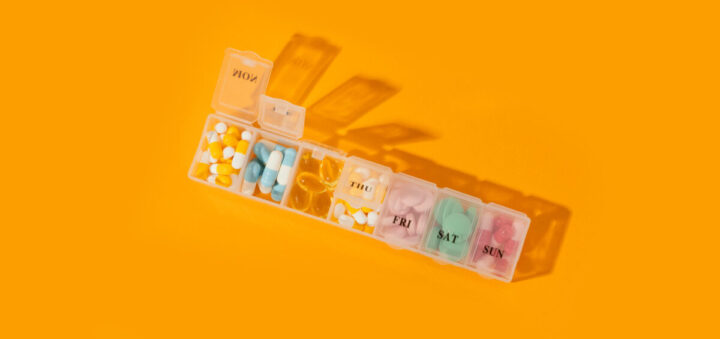The Sustainable Development Goals are one of the key programs promoted by the United Nations. Among the 17 goals to be achieved by 2030, HIV/AIDS issues become an important focus. It is expected that by 2030, HIV/AIDS no longer become a threat to the global community.
In order to address this issue, the Triple 95 target was launched. Triple 95 refers to 95% of PLHIV becoming aware of their status, 95% of those who are aware have access to treatment, and 95% of those who are treated have the virus suppressed. This obviously requires logistic support to ensure availability of test kits, ARV, and viral load testing tools.
ARV is usually administered once a month, but PLHIV may not be able to come visit the health facility providing ARV for various reasons, such as work, studies, travel, and others. The solution for this is the Multi-Month Dispensing (MMD) program, which supports PLHIV to be able to receive ARV for more than a month.
Ideally, MMD is carried out for a duration of 3-6 months, depending on stock availability and feasibility assessment by the health workers. Furthermore, MMD will reduce the number of visits, which in turn will reduce costs for the patient. This way, patients can maintain compliance to reduce retention and increase suppression of viral load. For healthcare providers with few workers, MMD will also help provide better services. Since the number of visits is reduced, they can concentrate on new patients or those who are lost to follow up.
MMD program is offered by health workers to qualified patients. Before undergoing MMD, patients will be briefed on the requirements, benefits, and other points to carry out during the program. For patients requiring ARV for more than 3 months, e.g., for overseas study or work, they need to provide supporting documents and the doctor will make statement that the patient will be carrying ARV for more than 3 months.
General requirements for MMD
- Have receivedARV for at least 1 year
- No adverse reaction to medicines that require regular monitoring, for example side effects of fever or diarrhoea that require treatment
- No current illness, particularly opportunistic infections
- Good understanding of compliance
- Evidence of successful treatment, suppressed virus to undetected levels (below 50 copies/mL blood)
MMD program was based on the following references
- MOH Circular (SE Kementerian Kesehatan no PR.01.05/I/1822/2019 (31 July 2019)) at the national level
- Health Office of DKI Jakarta Circular (SE Dinkes DKI Jakarta no 141/SE/2019 (17 December 2019)) for DKI Jakarta Province
- WHO. 2021. Updated recommendations on HIV prevention, infant diagnosis, antiretroviral initiation, and monitoring
- WHO strongly recommends:
- PLHIV undergoing ART for at least 6 months and showing positive response should be offered clinical visit every 3-6 months. If applicable, every 6 months would be recommended.
- PLHIV undergoing ART for at least 6 months and showing positive response should be offered ART refill for 3-6 months. If applicable, 6 months would be recommended.
- WHO strongly recommends:
- The Lancet Public Health. 2021. Multi-Month Dispensing of up to 6 months of antiretroviral therapy in Malawi and Zambia (INTERVAL): a cluster-randomised, non-blinded, non-inferiority trial
- Retention of clinical visits with ART every 6 months is not lower than the standard for treatment and the 3 months of ART.
- Provision of ART every 6 months is a promising strategy to expand ART accessibility and to achieve HIV treatment targets in areas with limited resources.
Recommendation and supporting studies for 3MMD/6MMD
- JIAS (Journal of the International AIDS Society). Twenty-four-month outcomes from a cluster-randomized controlled trial of extending antiretroviral theraphy refills in ART adherence club
- 2150 participants are provided a 6-month MMD. Retention is similar with 93.6% vs 92.6%. Better VL results at 85 vs 90.8%, and better suppression rates at 82.6 vs 87.3%.
- JIAS. Multimonth Prescription of Antiretroviral Therapy Among Children and Adolescents: Experiences from the Baylor International Pediatric AIDS Initiative in 6 African Countries
- Patients provided with MMD has better compliance and retention compared to patients taking monthly medicines.
MMD is rewarded to PLHIV patients who have been adhering to treatment. If there are any indications of non-compliance or neglect in treatment, MMD can be rescinded.
Healthcare providers are required to have ARV available for MMD program. PLHIV patients are required to agree to monitoring through the duration of MMD program by providing regular reports on the treatment and going through evaluations as required by healthcare providers.
MMD program is currently limited to healthcare services providing basic HIV treatment in several areas such as DKI Jakarta, Banten, and West Java. In the future, it is expected that all healthcare services providing HIV treatments will be able to provide the program.
